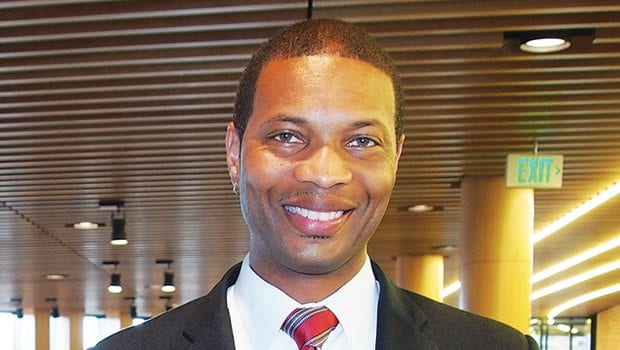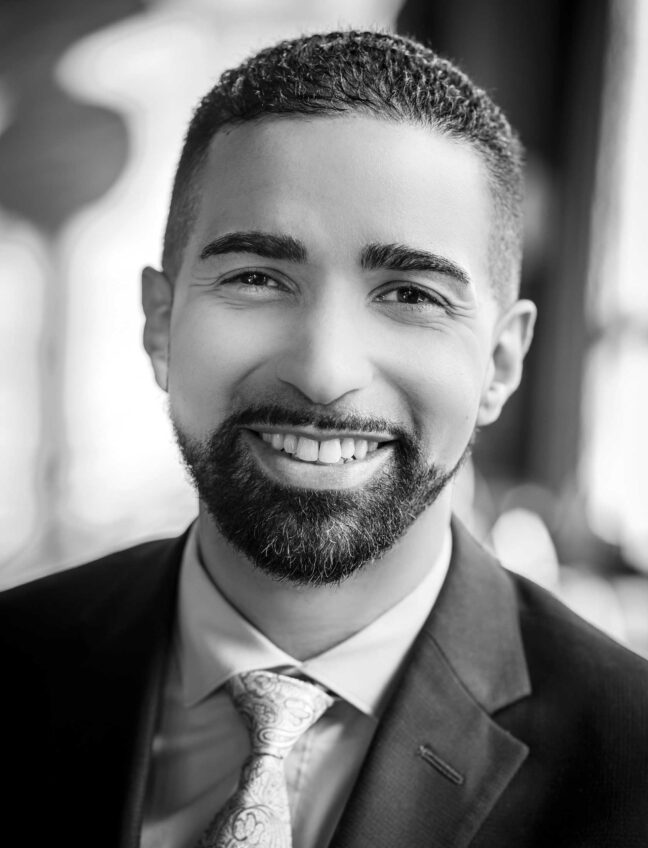Education chief says no secrets in BPS planning
Says emails were not indicative of planning on future needs for Boston school buildings

In the wake of the release of Walsh administration emails in which BPS officials discuss school closures, city officials say that there are no concrete plans to close schools.
Rahn Dorsey, the city’s chief of education, told the Banner that the city’s Build BPS planning process, which has been underway for several months, is the beginning of what will be an inclusive planning process focused on investment, not closures.
“Build BPS is a capital investment process,” Dorsey said in an interview at the Bolling Building BPS headquarters. “We’re trying to clarify what the vision is for teaching and learning. That’s the thing that has to guide everything we do, whether it’s investments in new buildings, whether it’s budgeting for the system. Everything we do has to be guided by the vision for teaching and learning.”
‘Shadow process?’
The city held its first public meeting on its facilities plan two weeks ago, days before the parent group Quality Education for Every Student released emails obtained through a Freedom of Information Act request in which BPS officials discussed plans to close schools.
“Framing the Facilities Master Plan as a response to the recommendation to close schools significantly understates the scope and imperative of the plan, but at the same time, the FMP [facilities master plan] is the mechanism through which we’ll right-size the district (among accomplishing other things), so not mentioning it would be to create confusion / shadow processes,” writes Erika Giampietro, special assistant to the superintendent, in a November 2015 email.
Both Dorsey and Mayor Martin Walsh downplayed the emails, which QUEST shared on its Facebook page.
“There’s no plan,” Walsh told the Banner in a brief interview two weeks ago. “Those were just conversations.”
QUEST requested all emails from BPS officials related to the controversial McKinsey & Company audit of the Boston public schools. The McKinsey report concluded that the school department had 54,000 students in buildings that could accommodate as many as 93,000 students, and suggested the department could save money by closing and selling school buildings.
In many of the exchanges, BPS and Walsh administration officials express concern about how the report’s findings will play in the court of public opinion.
“I have major concerns about stating ‘sell/lease 30-50 buildings’ as part of a strategy. It contradicts everything I have been saying about the master planning process: and it will obviously serve to fan the flames regarding the charters and the compact,” writes Ramon Soto, Walsh’s director of External Relations and Opportunity Gap Initiatives.
Dorsey stressed that the ongoing facilities master plan process will focus on the system’s needs for renovations and construction of new school buildings in cases where existing buildings are failing to meet school department’s needs. The plan also will include strategies for funding construction and renovations.
“We will have to take a look at what other changes need to be made to the portfolio to facilitate this investment, but the primary objective is to make sure we modernize Boston’s school buildings,” Dorsey said.
Dorsey said Giampietro’s remarks about “right-sizing” the school district was not characteristic of any internal conversations on the McKinsey & Company report or the facilities master planning process.
Broader focus
In his Nov. 7 email response to Giampietro, Dorsey downplayed the recommendations around school closures.
“The scope of FMP is more than school closures,” he wrote. “Also, the recommendation from the audit is not necessarily a target for the plan.”
The emails have raised concerns among parent activists that the BPS system is considering selling off school buildings for a one-time infusion of funds or leasing them to charter schools. In one email, Michael Tooke, a member of Boston Leaders for Education, advocates for underperforming schools to be converted to in-district or independent charter schools.
Dorsey said the facilities master plan will not take into consideration school performance.
Tooke’s email, sent to Superintendent Tommy Chang in March, 2015 – four months before he came on the job – was one of numerous emails Chang received from advocacy groups, Dorsey said.
“The superintendent and myself, we get opinions from stakeholders on an ongoing basis,” Dorsey said. “One of the things that Dr. Chang likes to say about education in Boston is that everybody has an opinion. And we hear a lot of them. I would say Mike Tooke is somebody who has an opinion about schools in the same way that QUEST has an opinion. Maybe QUEST’s opinion is not the same as Mike’s.
“At the time Mike gave his opinion, Tommy was in the middle of a listening tour. That was one of probably 1,600, if not more, voices Tommy heard about the direction the schools should head in.”
Moving forward, Dorsey said, the school department will continue to solicit input from parents on the facilities master plan. On August 16, BPS will launch its community engagement process. While many parents at a recent meeting said they would be on vacation at that time, teachers and principals are typically on hand in mid-August to prepare for the start of the next school year.
In a series of ensuing meetings, parents will have the opportunity to weigh in on the question of how school buildings can best fit the educational needs of the city’s students.
“One of things we talked about is clarifying the educational vision for the FMP,” Dorsey said. “We owe the public that. We’re still in the process of developing that. We’re looking forward to working with the public to make sure that it’s something we agree on and that’s clear. I think that agreement will go a long way towards people being able to understand the direction and being able to evaluate for themselves the potential impact and efficacy of the initiatives we’re looking at.”







